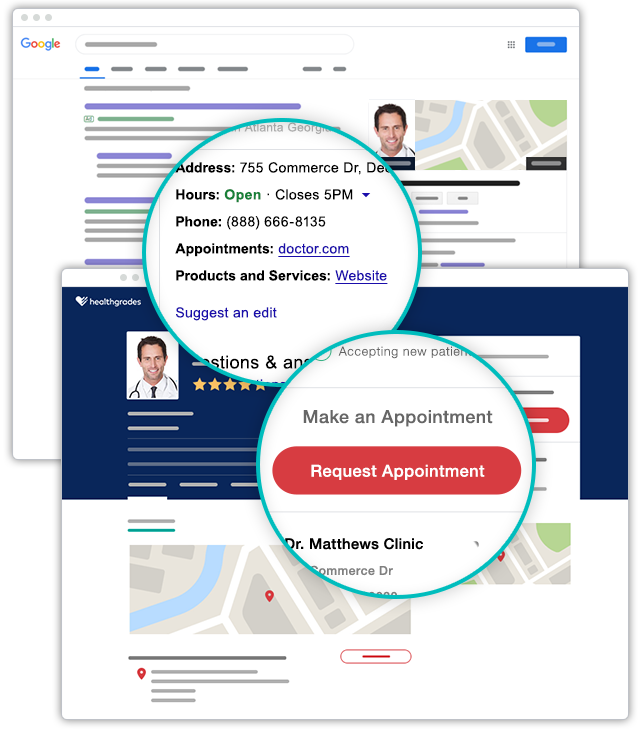3 ways online scheduling saves you money and brings in new patients
A doctor’s office is a busy place. A successful doctor’s office is even busier! And it’s not just in the examination room where things can feel hectic. Employees on the front lines of care — office administrators and managers who bear the brunt of answering phones, scheduling appointments, signing in patients, sending paperwork, updating the website, managing social media, handling insurance, and a host of other responsibilities — often feel just as underwater as doctors themselves.
In the fast-paced world of medicine, technology can go a long way in alleviating some of the most common administrative pain points. One obvious area new tech can help is scheduling. Other industries are light-years ahead compared to healthcare. People use digital tools to book flights, hotel rooms, movie tickets, hair appointments, restaurant reservations, and more. But when it comes to making a doctor’s appointment, the experience is clunky — and the industry is reluctant to change.
But change is inevitable. According to a recent Doctor.com survey, 60% of patients prefer making doctor appointments via digital means, up from 45% in 2018. It’s a trend that will continue to gain steam as we move into the new year and beyond. Doctors need to get on board, or else they’ll lose a significant number of patients to digitally savvy competitors.
There’s good news, too. Not only are patients receptive to online scheduling, but front-office employees will experience significantly lighter workloads after implementing the technology, too. Below are three ways your staff stand to benefit from integrating an online appointment scheduling option into their daily routine.
1. Online scheduling expands your office hours 24/7
It’s easier for people to call your office to schedule appointments when they’re not at work. Unfortunately, since most keep the similar business hours as your practice, they only have the time to look for doctors and book appointments when your office is closed. In fact, one out of three appointment requests is logged after business hours, signaling a significant need for 24/7 appointment booking.

You don’t want to miss out on people ready and willing to make an appointment. Universal online scheduling enables booking around the clock, when and where it’s most convenient for patients. This means you don’t need to pay someone to hang around after hours to manually enter appointments into the books, and the office will see more patient traffic overall. What’s more, unlike companies like Zocdoc, Doctor.com’s universal online scheduling solution doesn’t charge per appointment. Learn more about our program here.
2. Online scheduling reduces unnecessary phone time
More than half of patients aren’t able to schedule an appointment during their initial phone call — a wildly frustrating occurrence that may just lead them right into a competitor’s hands.
For staff, explaining to someone when the doctor has availability on his or her calendar or what insurance information they need is time better spent elsewhere. Online scheduling and appointment requests circumvent this issue by presenting all the info needed up front, without the patient having to hang up and call back when they have the correct documentation on hand.
But online scheduling isn’t the only digital tool that can have a major impact on the front office’s day-to-day. Digital communications — most notably, texting — can make things not only easier for your patients, but staff will see serious benefits too once they’re no longer tethered to the phone.
82% of patients prefer to receive appointment reminders digitally. Practices can automate these reminders, further reducing time wasted on the phone. Then, depending on their preference, patients can text, email, or call the office back to move an appointment or get any questions answered.
3. It leads to less miscommunication and better record keeping
Human error is real, on both sides of the patient–practice relationship. Thankfully, handling the interaction over digital channels reduces the likelihood that something will get lost in translation or simply forgotten. Using digital channels also maintains a record that both sides can reference, curtailing appointment confusion and significantly reducing no-shows.
Online scheduling and appointment requests not only make things easier on the patient end, but they have significant benefits for doctors and office staff, too. As patient demand for these capabilities is on the rise, it’s important to get a new, more digitally forward system in place so practices can start incorporating them into their day-to-day and get up to speed sooner rather than later.
This blog post was updated on January 31, 2020, to reflect the current Customer Experience Trends in Healthcare 2020 report.